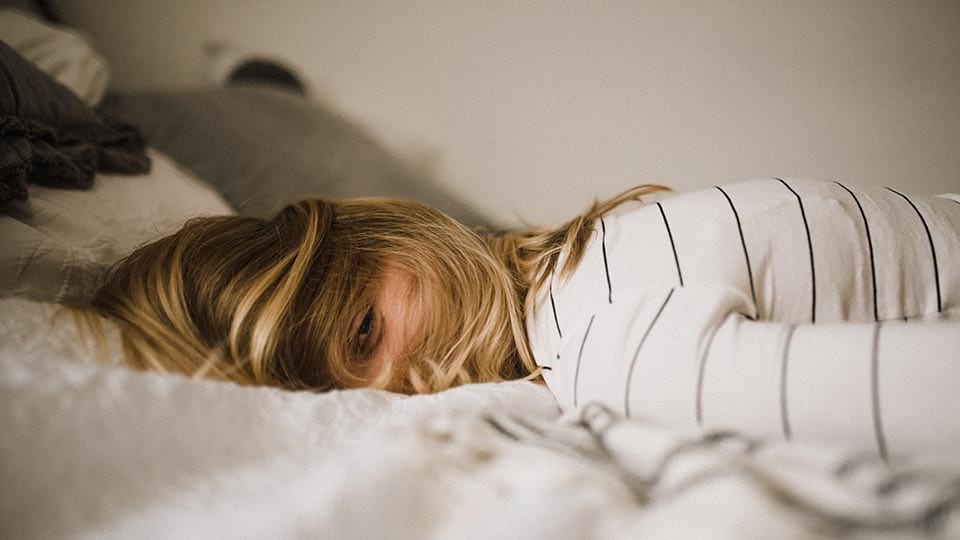Turn Sleep Into Your Secret Weapon for a Super-Fit Body
by Zenergy Personal Trainer Cory Duffy
How to know if you’re getting enough shuteye – and what to do if you aren’t!
First off, are you getting enough sleep?
Yes, of course, you may think. You sleep each night and manage to function each day, so you’re doing just fine. Right?
Well maybe, just maybe, you are falling a little short each and every night and have racked up a sleep deficit that is negatively affecting your health, performance and life.
If that is the case, there is a good chance you have simply forgotten how good it feels to perform at your best, let alone push the envelope.
Good news: With a few changes to your sleep routine, you will have a substantial advantage over those other 70 to 80 percent of Americans who continue to lack sleep.
 What’s the Right Amount of Sleep?
What’s the Right Amount of Sleep?
The recommended amount of sleep for the average adult is 8 to 9 hours each night.
This means good deep sleep, not just lying in bed with your laptop. Sorry, I thought the same thing when I read it the first time.
The total amount of sleep needed varies from individual to individual based on factors including: physical stress (workouts/work), mental stress (work/school), emotional stress (relationships, etc.), age, etc.
But, in general, 8 to 9 hours a night is typically sufficient.
If you were to not set an alarm clock, would you sleep past it? If the answer is yes, then there is clearly more sleep needed. – Matthew Walker, PhD
 The Secret Weapon
The Secret Weapon
I highly recommend getting a sleep tracking app for your phone or some way to track your sleep. There are apps for wearables, phones and devices specifically for sleep tracking. I personally use the free app Sleep Cycle.
The key is to measure what you are doing so you can assess its effectiveness.
The Secret Weapon is… Create a Daily Bedtime Routine
First step: Get out your trusty iCalendar or Google Calendar and block out 8 to 9 hours of sleep each night. Keep the timeframe consistent each day. Rhythm matters and puts your body into a cycle that will improve your sleep performance.
At right below is my current bedtime routine that takes about 30 minutes. It is scheduled in my calendar, with an alert, 30 minutes before my scheduled sleep time each night.
Top Tactics for Sleep Performance
Here is a list of top Tactics for Sleep Performance, in no particular order. Pick the ones that you think will work best for you and add them to your bedtime routine.
- Turn off all electronics. Two hours before sleeping, you should unplug or, at least, use blue light filters (apps for your phone, iPad and laptop that eliminate the blue light emitted by the device and replace it with a warmer red tone) Blue light interferes with the release of melatonin (a hormone that plays a role in sleep) because your body thinks it’s daytime.
- Use black-out shades. When it stays light until 9 or 10pm, it can be especially hard to fall asleep. So block out the light.
- Pop a supplement. I highly recommend taking Melatonin an hour or so before bed. My go-to is a spray from Onnit.com.
- Don’t lose your cool. The body cools down while you sleep. Therefore, having a cool room often help with getting and staying asleep. Leave a window cracked or fan on, if possible.
- Avoid the fridge. Stay away from food two hours before your sleep. But be especially aware of eating carbs (sugars) in that window. Research also has shown alcohol and obviously caffeine to be major factors in sleep loss and poor sleep quality.
- Relax your mind. Here’s a big one. It can be difficult to just turn off the brain at a certain time each night. I personally recommend reading for 30 minutes each night. For me, educational nonfiction seems to be the most relaxing.
- Meditation is helpful in so many ways, but in this case, you can use it to quiet your mind and get ready for sleep. There are some great guided meditation apps out there, such as Waking Up-Sam Harris and Headspace. They even have sleep-specific programs.
- Try essential oils. Opt for lavender or one of the blends for sleep.
- Block background noise. Use a noise machine or sleep music to help your body and brain relax for a good night’s sleep. I’m a big fan of Spotify, which has a few sleep options available. You also can find several machines on the market designed just for sleep.
Build your routine, test and adapt it so that it works best for you. The end goal is getting a full 8 to 9 hours of sleep a night and waking up energized and ready to go.
With your snooze time blocked out and your bedtime routine dialed in to maximize your sleep, you will wake up more energized, focused and ready to take on the day—and your workouts.
About Cory Duffy:
Cory brings seventeen years of fitness experience, providing a wealth of knowledge that’s ready to be applied toward your fitness goals.
Cory’s holistic approach stems from his varied background in general fitness, nutrition, recovery strategies, and overall mental performance. With over a decade of world-class instruction from the industry’s top professionals, Cory is a recognized authority on Performance Health and Longevity.
